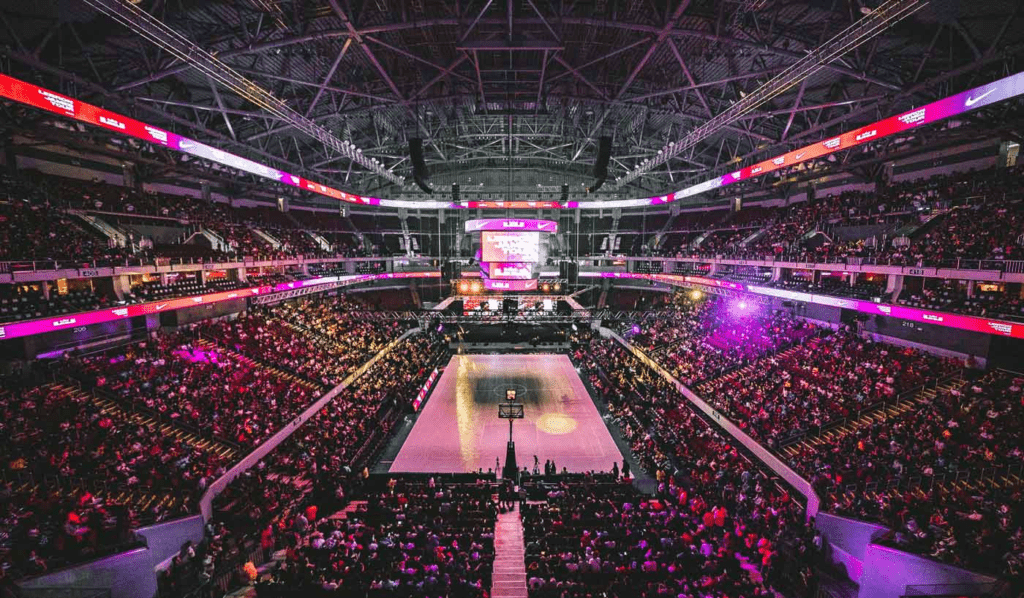
This article is written by Prakriti Vinayak of B.A.LL.B (HONS) of 4th Semester of G.H.G Institute of Law, Ludhiana, an intern under Legal Vidhiya.
ABSTRACT
This research paper delves into the challenges presented by COVID-19 in regulating sports laws and contracts. It provides nuanced explanation of legal provisions regulating sports contracts and examines the impact of postponement and cancellation of major sporting events on athletes, teams, coaches, broadcasters and sponsors. It also provides quantitative estimates of losses incurred in various sporting events like football and the Tokyo Olympics 2020. It further discusses the provisions of Force Majeure and the doctrine of frustration that can be invoked during tough times in order to regulate sports laws and contracts. Furthermore, it analyses key judicial precedents that have shaped the future of sports laws in India and the globe and then evaluates the role played by international governing bodies in regulating contractual obligations and employment contracts during COVID-19. Finally, the paper concludes by offering suggestions for reform and a way forward, advocating for a comprehensive, unified approach to regulation, dedicated legislation in India that balances legal clarity, athletes protection, and economic benefits.
KEYWORDS
Force Majeure, Doctrine of Frustration, Indian Contract Act 1872, Regulating Bodies, Tokyo Olympics 2020, Esports, Virtual Events.
INTRODUCTION
The COVID-19 pandemic had adverse impacts on the sports industry ranging from the cancellation and postponement of major events to the cancellation of sports contracts, leading to massive financial losses. As the virus spread rapidly, the governments worldwide imposed strict measures like lockdowns, social distancing and bans on mass gatherings. As a result, major events like the Tokyo Olympics 2020 and UEFA Euro 2020 were postponed, while Wimbledon 2020 was cancelled for the first time since World War II. The sports sector faced huge financial setbacks, including a dip in ticket sales, broadcasting revenues and a reduction in sponsorship and advertisement deals. One estimate suggests that the sports industry could lose 2.2 billion U.S. dollars of national TV revenue due to COVID-19[1]. Beside financial losses, the pandemic brought significant legal challenges like disruption in contracts that bind athletes, broadcasters, sponsors and teams. Many parties invoked force majeure clauses that render parties free from their contractual obligations if they are unable to fulfil them due to an unforeseeable event.
Moreover, employment contracts were also affected where athletes and coaching staff faced salary reductions, deferred payment and even terminations. Top tier clubs were still able to make it through, but smaller clubs faced existential threat as they were unable to pay salaries to players, maintain infrastructure and cover operational cost. Many freelance and individual athletes who relied on prize money from sports competitions faced huge setbacks. COVID-19 not only disrupted the lives of athletes or coaching staff but also had indirect effects on individuals and industries connected to the sports field. For example, a decline in the number of visitors attending sporting events also impacted the tourism industry. Currently, India does not have any dedicated law governing sports affairs and this calls for the enactment of clear legislation that deals with sports contracts and principles like Force Majeure to avoid such ambiguities in future.
This article further examines the types of contracts existing in the sports industry, relevant provisions of the Indian Contract Act 1872[2], and their legal implications during the time of crisis like COVID-19.
DEFINITIONS AND TYPES OF SPORTS CONTRACTS
- Section 2(h) of Indian Contract Act 1872[3] defines Contract as:
“An agreement enforceable by law is a contract.”
- Black Law Dictionary[4] defines Contract as:
“A promissory agreement between two or more persons that creates, modifies, or destroys a legal relation”
Types of Sports Contracts
Standard Player Contracts are signed between an athlete and sports clubs or organizations. They cover information about salary, length of the contract, performance-based bonuses and other rights and responsibilities. These Contracts are essential as they establish a formal relationship between athletes and clubs. The Endorsement Contracts allow athletes to endorse products or services for major companies and producers in return for payment or other benefits. The athletes promotes products and services of the brand and the brand benefits from the athlete’s popularity and credibility. In addition, Broadcasting Contracts are signed between broadcasters and sports organizations, which grant rights to television networks or streaming services to air sporting events in exchange for broadcasting fees. Furthermore, there are Indemnity agreements, in which one party agrees to compensate or protect another party against certain types of losses or damages that may arise during a sporting event or related activities. These agreements are crucial for athletes to protect them from financial losses especially during the time of crises.
IMPACT OF COVID-19 ON SPORTING EVENTS
Due to COVID-19, major events like Tokyo Olympics 2020 initially scheduled for July 2020 was postponed to July 2021. Union of European Football Association (UEFA) Euro 2020 was postponed by a year and held in 2021. Indian Premier League (IPL) season was delayed and later played in September-October 2020 in the UAE. These postponements led to significant financial and legal challenges such as uncertainty in the terms of pre-existing contracts and revenue generation. Events like Wimbledon 2020, which was scheduled to take place in June 2020, was cancelled for the first time since World War II. Boston Marathon were cancelled for first time in its 124-year history, many local competitions were also cancelled citing health concerns due to virus.
But, Esports mainly gained popularity during this time and many individuals started seeing their career in this field as a result its global market share increased. Events that were held during COVID-19 were audience-free and under strict protocols. Furthermore, the postponements and cancellations of events caused revenue losses to athletes, teams, clubs, broadcasters and sponsors. The Tourism and Hospitality industry was also affected badly due to absence of spectators, who come to see sporting events.
Quantitative Estimates of Financial Losses
According to a report the global sports industry faced a loss of about $61.6 billion in 2020 due to COVID-19[5], a significant decline as compare to previous years revenue generation. The European football market also saw a decline of around $4 billion in revenue in 2020 due to COVID-19[6], with most of the losses coming from match day revenues and broadcasting rights renegotiations. Moreover, the Tokyo Olympics which were postponed to 2021 saw a budget overrun of $2.8 billion because of logistical and pandemic-related expenses[7].
LEGAL ASPECTS
Force Majeure is a French term that means “a superior force”. Most of the contracts contain provisions of Force Majeure clauses to address unforeseeable events that render performance impossible. The key element of force majeure is that the event is external, unforeseeable, and
Beyond the control of the party seeking to invoke it.
- Section 31 of Indian Contract Act 1872[8] – This section provides the definition of contingent contract as:
“A contract to do or not to do something, if some event, collateral to such contract, does or does not happen”
- Section 32 of Indian Contract Act 1872[9]– This section deals with performance and enforcement of contingent contracts. This section does not explicitly define Force Majeure but it aligns with the essence of Force Majeure events that are contingent on the happening of a future event.
In the sports industry Force Majeure clauses are included in various types of contracts and pandemics usually form a ground for the application of Force Majeure clauses and in many places, COVID-19 was declared a ground under Force Majeure.
In addition, Section 56 of Indian Contract Act 1872[10] deals with doctrine of frustration which states that contract becomes void if its performance becomes impossible due to an event or circumstance that was unforeseen or beyond the control of the parties. The key elements of this doctrine are Unforeseeability, impossibility and change in circumstance due to which the contract can not be performed. The doctrine of frustration was invoked in the sports industry during COVID-19 as a legal mechanism to cancel or modify contracts that became impossible to fulfil due to the unprecedented nature of the pandemic.
KEY JUDICIAL DECISIONS
1.Satyabrata Ghose v. Mugneeram Bangur & Co. (1954)[11]
In this case, the Supreme Court dealt with application of section 56 i.e. Doctrine of Frustration and clarified that this section applies to situations where events fundamentally alters the nature of contracts, rendering it impossible to perform. The court also emphasized that mere inconvenience or financial loss does not constitute frustration.
This precedent sets a stage for sporting events where the doctrine of frustration was enforced that were cancelled due to COVID-19.
2.Taylor v. Caldwell (1863)[12]
One of the foundational cases in English contract law, where the Court held that the contract was
Frustrated when the music hall, essential for the performance, was destroyed by fire. This case
Established the legal principle that contracts may be frustrated when performance becomes
Impossible due to an external event.
3.Krell v. Henry (1903)[13]
This case further clarified the doctrine of frustration. The Court ruled that a contract could be frustrated when the basis of the contract (in this case, viewing the coronation procession) is
Destroyed due to unforeseen events (in this case, the event being cancelled)
4.Energy Watchdog v. CERC (2017)[14]
The Supreme Court of India ruled that force majeure in contracts is governed by the Indian
Contract Act, 1872. If a contract explicitly or implicitly includes a force majeure clause, Section 32 applies, while in the absence of such a clause, Section 56 on frustration of contracts is
Invoked.
This case further clarified the application of section 32 and section 56 in the cancellation of sporting events due to COVID-19.
ROLE OF GOVERNING BODIES
Governing bodies play an important role in regulating sports laws and contracts especially during unforeseen events like COVID-19. Their responsibilities further increases when pandemic test their abilities in mediating disputes of contractual obligations while maintaining transparency and fairness throughout the process. The FIFA’s COVID-19 Guidelines helped clubs, players, and other stakeholders handle contract-related challenges caused by the pandemic. Court of Arbitration for Sport (CAS) also saw an increase in number of cases during pandemic, related to contractual obligations and employment contracts as many clubs were reducing the salaries of athletes. Thus, governing bodies play a crucial role In sports industry and their duties further increases in situations like COVID-19.
SUGGESTIONS AND WAY FORWARD
COVID-19 ignited the need for sports organisations to include more clear and detailed Force Majeure clauses in sports contracts, including provisions for pandemics. So that in the future such ambiguity does not exist in contracts thus making it easier for athletes, broadcasters and sponsors. Also, Governing bodies must implement stronger guidelines to prioritize athletes health and wellbeing at the time of crisis and they should also protect athletes financially during tough times like COVID-19. The pandemic has revealed the situation of sports at grassroots as many clubs and organizations were barely able to survive and their financial and infrastructural vulnerabilities were exposed. And this calls for development of sports at ground level so that if next time similar situation takes place they are able to survive and make through it. Currently, India does not have any dedicated law governing sports affairs beside Indian Contract Act 1872, Competition Act 2002[15] & other such laws. And this calls for the enactment of clear legislation that deals with sports contracts and principles like Force Majeure to avoid such ambiguities in future.
CONCLUSION
Thus, it can be concluded that COVID-19 has impacted sports law and contracts in numerous ways. It brought significant challenges to the global sports industry, affecting contractual obligations, financial stability, and legal frameworks. Cancellation and postponement of major events like Wimbledon 2020 and Tokyo Olympics 2020 led to huge financial losses at both athletes and broadcasters level prompting stakeholders to invoke Force Majeure clauses and the doctrine of frustration under contract law to navigate the crisis. The Indian Contract Act 1872 played a significant role in determining whether individuals from contractual obligations should be released or not. International governing bodies like CAS, FIFA and IOC also played an important role in handling contractual issues and employment related disputes. COVID-19 crisis highlights the need for dedicated law in India to regulate contracts, dispute resolution, player rights, and financial obligations in times of unforeseen crises. The pandemic exposed the vulnerabilities of sports sector but also provided a crucial learning opportunity to strengthen legal frameworks. Therefore, a robust legal structure combined with efficient governance and contractual clarity is essential to ensure the long-term stability and growth of the sports sector in India and beyond.
REFERENCES
- Ramit Mehta, COVID-19 Crisis: Force Majeure and Impact on Contracts from an Indian Law Perspective, Live Law (Apr. 2, 2020), https://www.livelaw.in/amp/lawfirms/articles/covid-19-crisis-force-majeure-and-impact-on-contracts-from-an-indianlaw-perspective-154698.(Last visited Feb. 1, 2025)
- Divya Taneja, Navigating the Legal Field: A Dive into Sports Contracts and Law in India, G-Spr (May 16, 2024), https://www.g-spr.com/post/navigating-the-legal-field-a-diveinto-sports-contracts-and-law-in-india. (Last visited Feb. 1, 2025)
- Ishita Singh, Impact of the Pandemic on Sports Law, Legal Service India, https://www.legalserviceindia.com/legal/article-3837-impact-of-the-pandemic-on-sportslaw.html.( Last visited Feb. 1, 2025)
- Adarsh Saxena, Aditya Sikka & Drishti Das, Force Majeure in the Times of COVID-19, Cyril Amarchand Blogs (Apr. 30, 2020), https://corporate.cyrilamarchandblogs.com/2020/04/force-majeure-in-the-times-of-covid19/.( Last visited Feb. 1, 2025)
- Ambit of Force Majeure Clause in Agreements in India, S.S. Rana & Co. (July 17, 2020), https://ssrana.in/articles/ambit-of-force-majeure-clause-in-agreements-in-india/ (Last visited Feb. 1, 2025)
[1] Available at Statista, Revenue Loss in the Sports Industry Due to the Coronavirus (COVID-19) Pandemic Worldwide from 2019 to 2023, https://www.statista.com/statistics/1114808/coronavirus-sports-revenue-loss/ (last visited Feb. 1, 2025).
[2] The Indian Contract Act, 1872, No. 9, Acts of Parliament, 1872
[3] The Indian Contract Act, 1872, § 2(h), No. 9, Acts of Parliament, 1872
[4] Black’s Law Dictionary 405 (4th ed. 1951)
[5] Available at Circles: Coronavirus to Cost Global Sports Industry US$61.6bn in Lost Revenue—Study, SportsPro Media (May 11, 2020), https://www.sportspro.com/news/two-circles-coronavirus-sports-industry-revenues-losses-study/.(last visited Feb. 1, 2025)
[6] Available at Europe’s Top Football Leagues Lose €4.5 Billion Due to Pandemic, Consultancy.uk (Sept. 22, 2020), https://www.consultancy.uk/news/26607/europes-top-football-leagues-lose-45-billion-due-to-pandemic.(last visited Feb. 1, 2025)
[7] Available at Tokyo Olympics Delay Costs Near $2.8 Billion, Business Today (Dec. 4, 2020), https://www.businesstoday.in/latest/world/story/tokyo-olympics-delay-costs-near-28-billion-280539-2020-12-04. ( last visited Feb. 1, 2025)
[8] The Indian Contract Act, 1872, § 31, No. 9, Acts of Parliament, 1872
[9] The Indian Contract Act, 1872, § 32, No. 9, Acts of Parliament, 1872
[10] The Indian Contract Act, 1872, § 56, No. 9, Acts of Parliament, 1872
[11] Satyabrata Ghose v. Mugneeram Bangur & Co., (1954) SCR 310
[12] Taylor v. Caldwell, (1863) 122 Eng. Rep. 309 (K.B.).
[13] Krell v. Henry, [1903] 2 K.B. 740 (Eng.).
[14] Energy Watchdog v. Cent. Elec. Regul. Comm’n, (2017) 14 SCC 80
[15] The Competition Act, 2002, No. 12, Acts of Parliament, 2003
Disclaimer: The materials provided herein are intended solely for informational purposes. Accessing or using the site or the materials does not establish an attorney-client relationship. The information presented on this site is not to be construed as legal or professional advice, and it should not be relied upon for such purposes or used as a substitute for advice from a licensed attorney in your state. Additionally, the viewpoint presented by the author is personal.




0 Comments